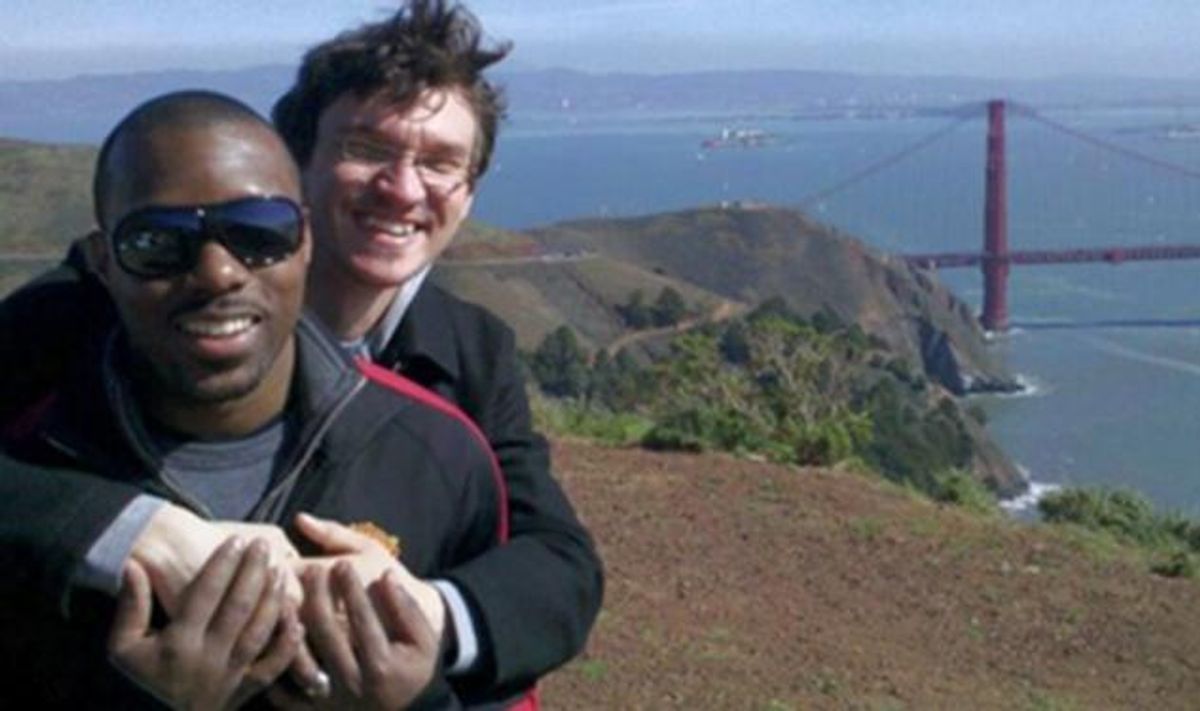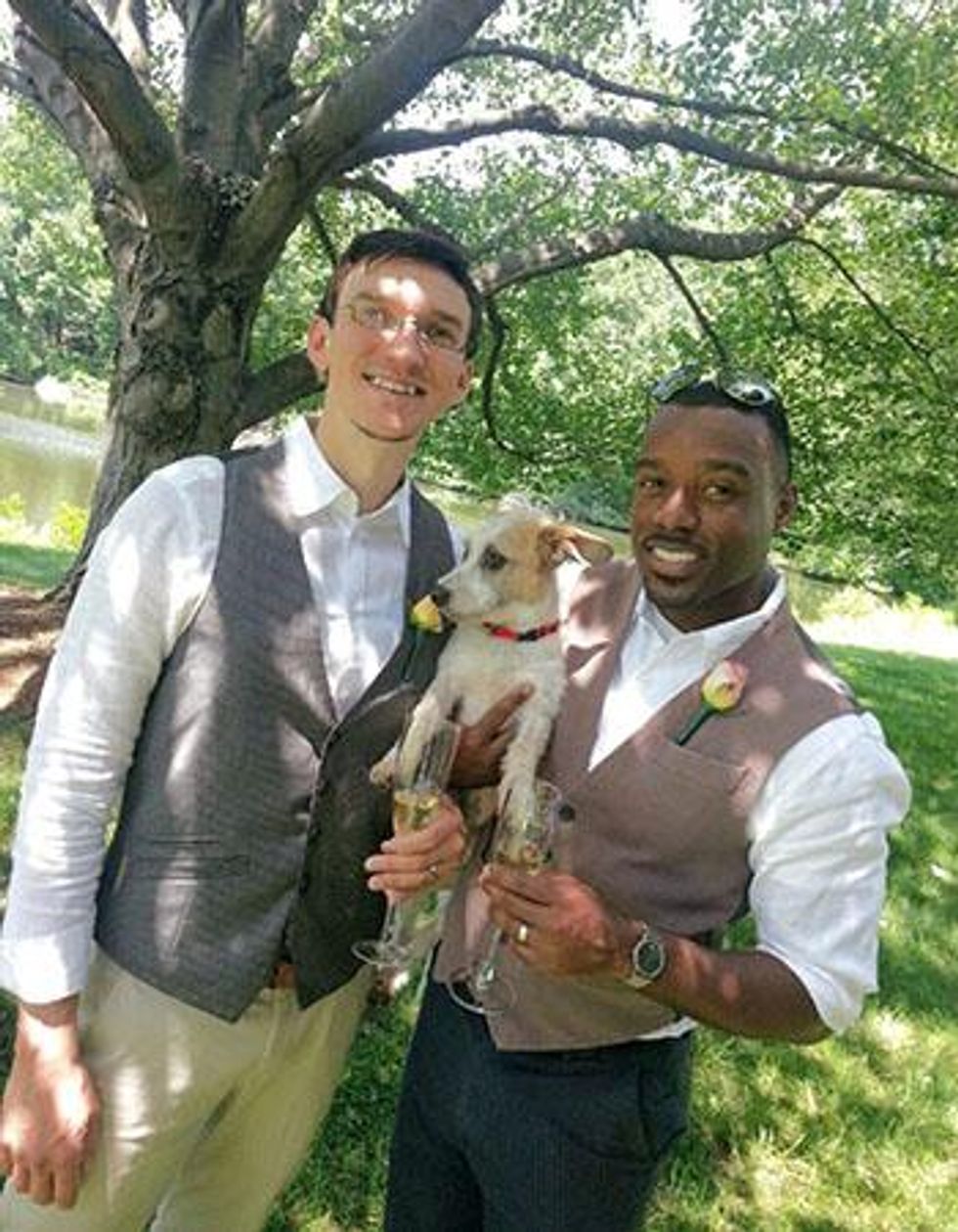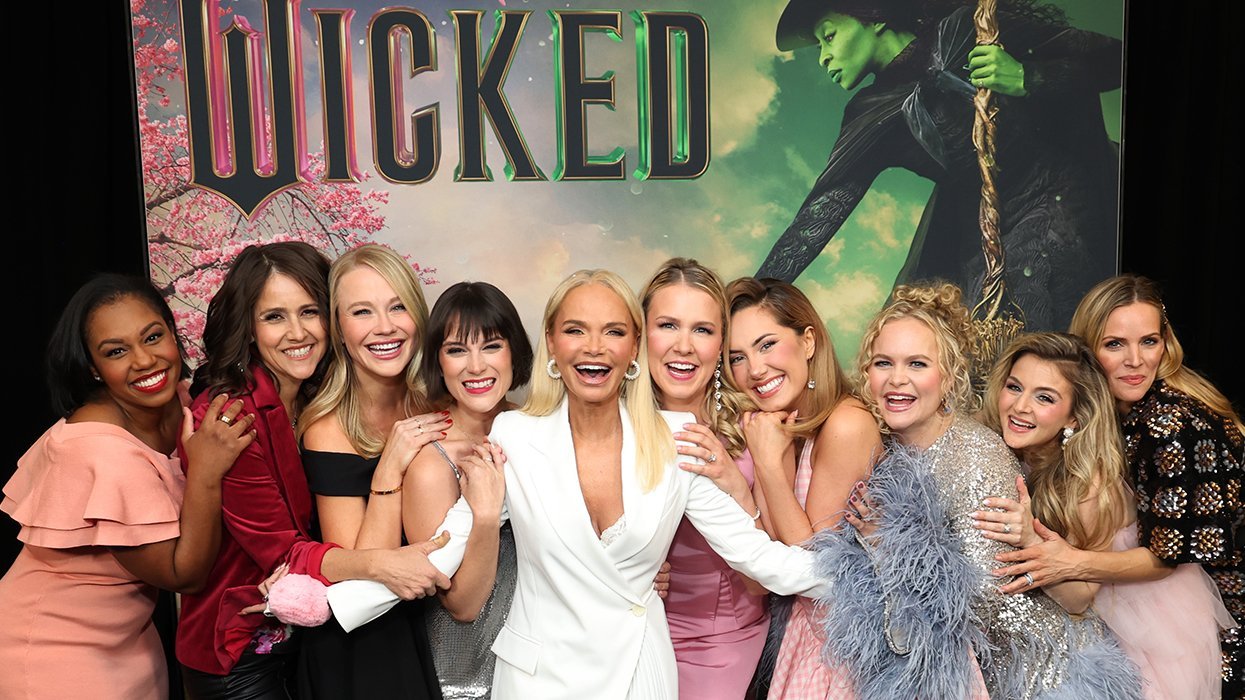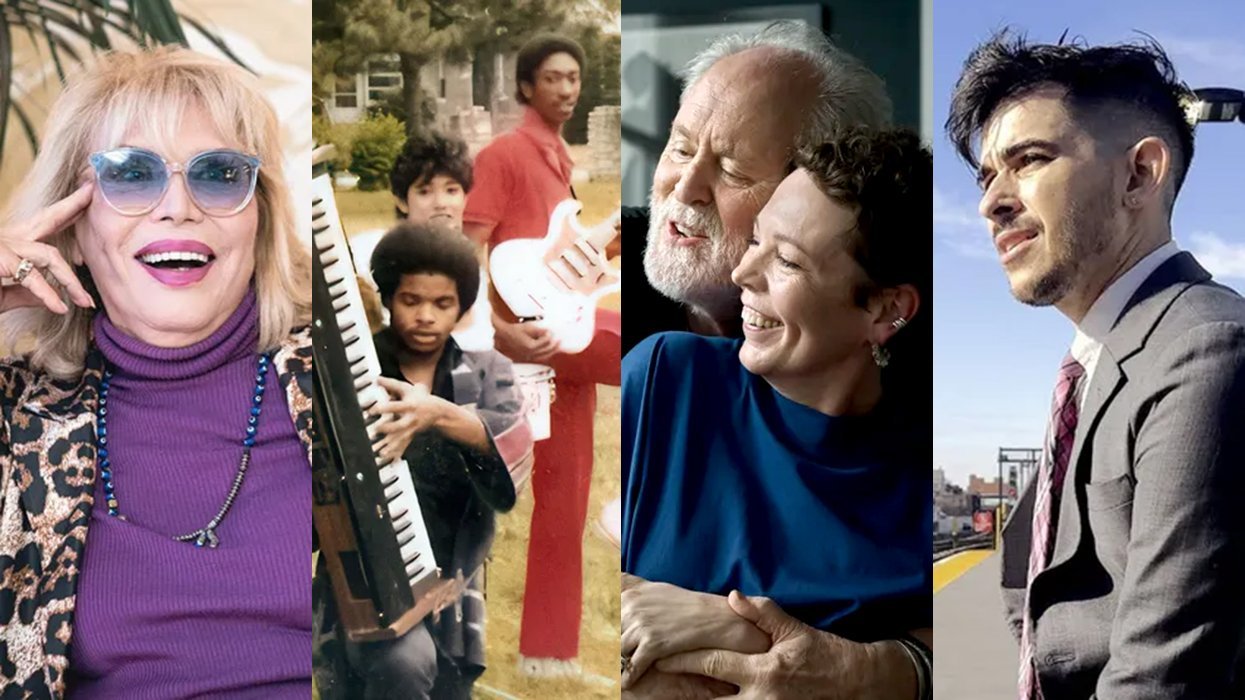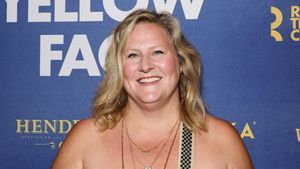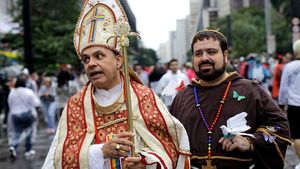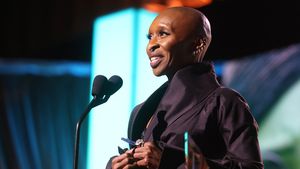June 26, 2013 is marked on my calendar as the day my marriage became real, even though my husband and I were officially married on December 26, 2011. For eighteen months after we both said, "I do," we lived in matrimonial purgatory in which we were seen as a married couple by the great state of Connecticut, but treated as single individuals by the federal U.S. government, solely because of the Defense of Marriage Act (DOMA).
The legislative slight against the validity of our love was demeaning and hurtful. But the practical consequence of DOMA was much more dire. We needed the federal government to recognize us as a married couple so that my husband, Joe, an American, could sponsor me, a Trinidadian, for U.S. residency.
The Supreme Court decision, in the case of United States v. Edie Windsor, to strike down Section 3 of DOMA as unconstitutional released us, and thousands of other gay couples, from our purgatory.
On June 26, 2013, I stopped living in uncertainty over the fate of my marriage and my immigration status. The last time I went to the U.S. embassy in Port-of-Spain, shortly before my marriage in 2011, I was terrified that my visa renewal would not be approved. The unsettling part was that they are not required to provide any reason at all for a visa denial. Joe and I could have our lives thrown in limbo on the capricious whim of an otherwise pleasant man who thought nothing of our love.
On June 26, 2013, I stopped feeling like an outsider in the country in which I became an adult. The otherwise pleasant immigration officer who approved my visa in 2011 made it clear that I had only one year left--after that, I was out of visa renewals and would have to leave the U.S. The immigrant agent at JFK said the same thing, as did the customs official. I was anxious about the tight timeline, Joe and I focused on the one year we had left. We'd worry about what came next later.
On June 26, 2013, I stopped having nightmares about being separated from my husband or forced into exile from the U.S. In 2012, my then-boss glumly informed me that the company would not be petitioning to upgrade my work visa to permanent status.
"Isn't your husband an American?" he asked, referring to Joe, whom he'd met once or twice at company picnics. "Couldn't he sponsor you for a green card?"
"Theoretically," I said, sighing as I exited his office. "But it's not so straightforward."
It was straightforward enough for our heterosexual friends in bi-national marriages. Joe's friend Adam had traveled to Japan after college to teach English and immerse himself in the local culture. He ended up falling in love. Not long after marrying his wife, Sun Yi, in Boston, they began to look for a bigger apartment on the outskirts of the city.

These were the types of concerns that preoccupied newly married couples. Where should we live. How many bedrooms do we need. Should we buy, or rent. Forget the idea of planning for children--Joe and I didn't even feel secure enough to adopt the puppy that I wanted more than anything else.
We began to consider other countries where we might flee as married refugees. We spent many weekends studying the minutiae of visa requirements for international travel, while our friends went furniture shopping, binge-watched Breaking Bad, or planned vacation trips. You know, the things married couples are supposed to do.
It was one thing for me, as a foreigner, to feel betrayed by the country in which I'd spent my entire adult life. But Joe was born and raised here. His father had fought for his country in Vietnam. His grandmother, almost 100 years old, had lived through the Great Depression, and Ronald Reagan's presidency. Yet America was treating him like an alien who didn't belong, forcing him to make a choice between his country and his marriage.
On June 26, 2013, I stopped feeling like a second-class human being forced to subsist on "skim milk marriage." Thanks to Edie, and so many other LGBT and legal stakeholders, I can now share this story from my home in Connecticut, where I live with my husband and our puppy, as a family.
There is a whole section of U.S. immigration law specifically devoted to Americans married to foreign nationals. Love, the legislators romantically reasoned, knows no political boundaries. There is still much to be improved about U.S. immigration policy, but today, thanks to the Supreme Court decision on June 26, 2013, we can celebrate that love, at least on a federal level, knows no sexual or gender boundaries, either. That's what I call a happy anniversary.
Colin Hosten became a permanent resident of the United States of America in January 2014. He will graduate with an MFA in Creative Writing from Fairfield University in July. He is currently completing a collection of essays about falling in love. Originally from Trinidad, he currently lives in Connecticut with his husband, Joe, and their dog, Bugsy. You can read more about Colin and Joe's situation before DOMA was stuck down here.
